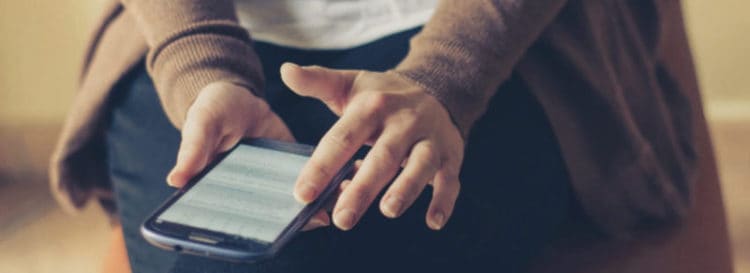
28 Dec Are you a phubber?
Am I what? A phubber. The word “phub” is the blending of phone plus snub. To phub (v.) is to snub someone in favor of smartphone connection to the internet, social media, text, or email.
I won’t fib, I have phubbed. Sometimes more than others. Given what I observe on a regular basis, I would imagine you have too. When a conversation gets boring, when we hear our messages or social media ping, or when we have the urge to look up information – right now – it is sooo easy to get sucked into that small rectangular device.
Those who phub are more likely to be phubbed; an ugly cycle. I am sure you have been there when someone starts checking their phone. We feel ignored and annoyed initially, but how long does that last before we give in and check our own screen. It may feel like permission has been granted or its that we don’t want to appear awkward in public or, God forbid, we might miss out on something. Before long, all conversation is halted and both people are snagged deep into an electronic spiral.
The sad part is that when this happens we are losing connection with the friend or lover who is right in front of us. I often hear clients express a craving for deeper connection with others. My concern is that this behavior lessens our opportunities to experience deep friendship and intimacy.
Evidence suggests that phubbing in intimate partner relationships lowers overall relationship satisfaction. In a research study of 450 couples it was found that 46% of survey respondents experienced phubbing. Of those that experienced phubbing, 23% said it negatively impacted relationship satisfaction and caused conflict and 37% reported feeling depressed at least some of the time. Not surprising. Feeling ignored and uninteresting is not generally a relationship booster.
Combat phubbing behavior:

- Have empathy for your friend, child, or intimate partner. Think about how it feels to be phubbed and reconsider your actions.
- Speak up gently and respectfully about how you feel when someone is phubbing you.
- If you want to look something up together, agree on it first.
- Silence your phone when with others.
- If your job or family responsibilities allows, turn the phone off when with loved ones. If you must answer a text or email, explain first.
- Ask yourself when deep into texting or Facebooking: “Is this virtual conversation really more interesting than the person with me?” & “If this person was texting me, would they be getting more attention from me?”
How often do you and your partner phub?
Answer each item on a scale from 1 (never) to 5 (all the time) to help you assess how much phubbing may be present in your relationship:
- During a typical mealtime that my partner and I spend together, my partner pulls out and checks his/her cell phone.
- My partner places his or her cell phone where they can see it when we are together.
- My partner keeps his or her cell phone in their hand when he or she is with me.
- When my partner’s cell phone rings or beeps, he/she pulls it out even if we are in the middle of a conversation.
- My partner glances at his/her cell phone when talking to me.
- During leisure time that my partner and I are able to spend together, my partner uses his/her cell phone.
- My partner does not use his or her phone when we are talking .
- My partner uses his or her cell phone when we are out together.
- If there is a lull in our conversation, my partner will check his/her cell phone.
Have a safe & happy New Year! Use your cell phone responsibly – Kate
Dig deeper:
Chotpitayasunondh, V., & Douglas, K. M. (2016). How “phubbing” becomes the norm: The antecedents and consequences of snubbing via smartphone. Computers in Human Behavior 63, 9-18.
Pathak, S. (2013). McCann Melbourne made up a word to sell a print dictionary. Advertising Age. Retrieved from http://adage.com/article/news/mccann-melbourne-made-a-word-sell-a-dictionary/244595/
Roberts, J. (2015). Too much of a good thing: Are you addicted to your Smartphone? Computers in Human Behavior. Retrieved from http://www.sentiapublishing.com/psychology/too-much-of-a-good-thing-are-you-addicted-to-your-smartphone-james-roberts-ebook/
Stop Phubbing. Interesting stats on phubbing and electronic communication. http://stopphubbing.com/






Sorry, the comment form is closed at this time.